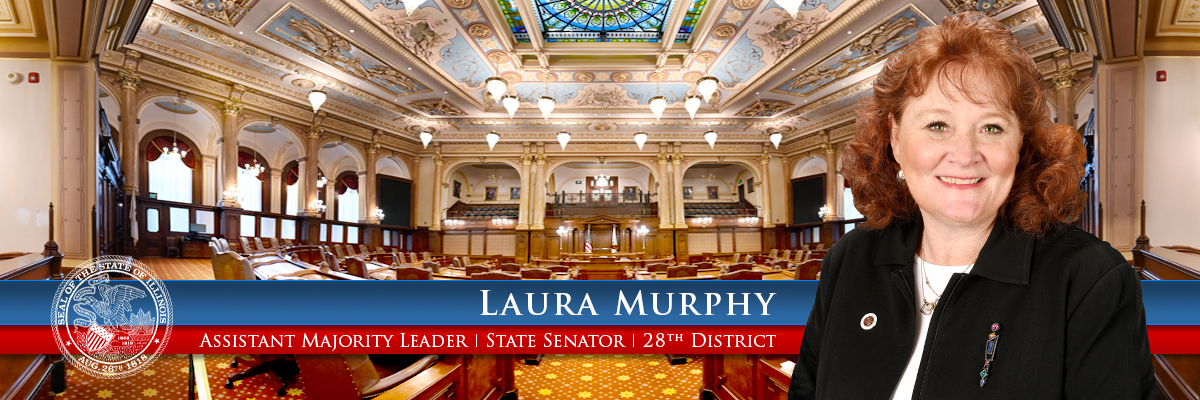Murphy advances plan to give park districts more time for COVID-19 recovery
- Details
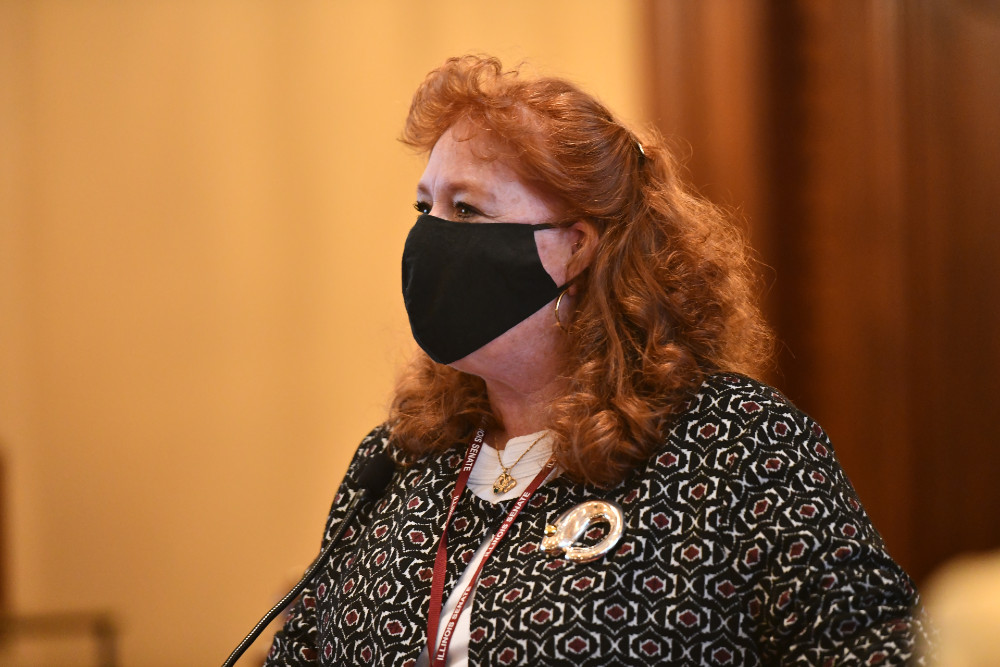 SPRINGFIELD – To provide support to local park districts as they recover from the COVID-19 pandemic, a measure sponsored by State Senator Laura Murphy (D-Des Plaines) that passed the Senate Wednesday would give park districts more time to complete projects funded through the Open Space Lands Acquisition and Development (OSLAD) grant program.
SPRINGFIELD – To provide support to local park districts as they recover from the COVID-19 pandemic, a measure sponsored by State Senator Laura Murphy (D-Des Plaines) that passed the Senate Wednesday would give park districts more time to complete projects funded through the Open Space Lands Acquisition and Development (OSLAD) grant program.
“Every community was impacted by the COVID-19 pandemic differently, and as a result, they are all recovering at a different pace,” Murphy said. “This initiative would give park districts the authority to set the timeline for their own community’s projects.”
The Illinois Department of Natural Resources, which administers the OSLAD grant program, provides an advance payment of 50% of the grant up front. State law requires grantees to complete projects within two years of receiving grant funds, meaning that park districts have just two years after this advance payment to complete projects.
The legislation Murphy has proposed would allow park districts to opt out of advance payments on OSLAD grants, delaying the start of the two-year grant timeline and giving them more authority over when to begin projects.
In addition to allowing park districts more freedom on future projects, Murphy’s initiative would also provide more flexibility on active grant projects by directing IDNR to consider recipients’ requests to extend deadlines.
“As our entire state works to recover from the COVID-19 crisis, flexibility is critical,” Murphy said. “We must give our local governments and park districts the time they need to make a full and complete recovery.”
Senate Bill 321 passed the Senate and now heads to the House.
Senate approves Murphy plan to protect recordings of students from leaks
- Details
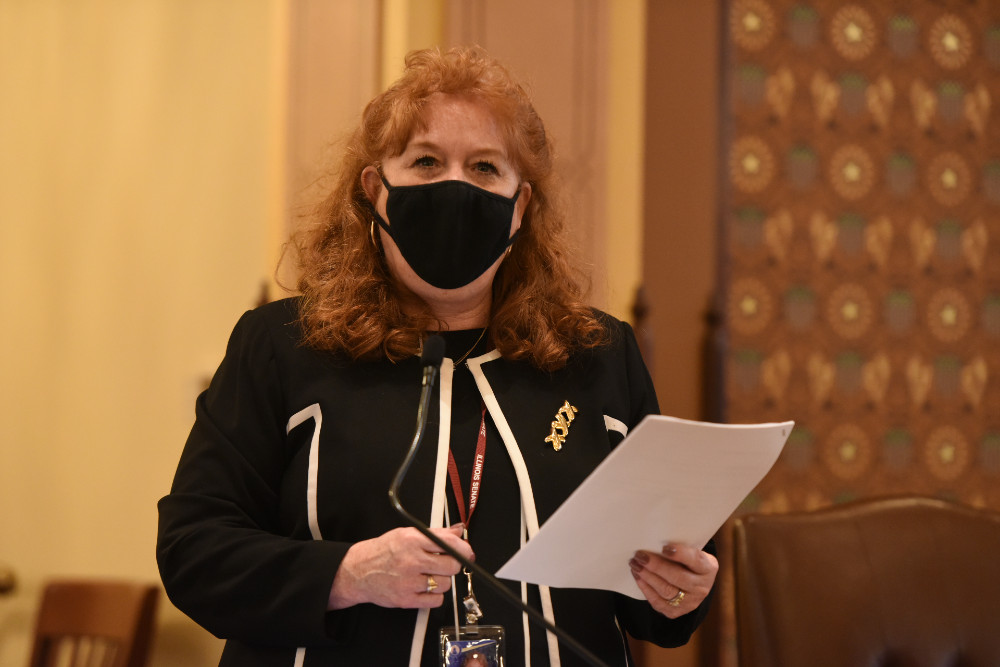 SPRINGFIELD – To give parents the peace of mind that videos of their students at school won’t be shared with unauthorized parties, State Senator Laura Murphy (D-Des Plaines) advanced legislation out of the Senate Thursday to remove the video recording requirement from the Illinois edTPA teacher licensing assessment.
SPRINGFIELD – To give parents the peace of mind that videos of their students at school won’t be shared with unauthorized parties, State Senator Laura Murphy (D-Des Plaines) advanced legislation out of the Senate Thursday to remove the video recording requirement from the Illinois edTPA teacher licensing assessment.
“Uploading videos of children to a third-party vendor poses a cybersecurity risk, threatening kids’ privacy, and in some cases, their safety,” Murphy said. “It’s time to explore more secure ways to assess our student teachers’ performance.”
The legislation would establish student teachers cannot be required to videotape themselves or their students in order to earn a license.
Currently, student teachers in Illinois must record themselves and their students on video to pass the edTPA, an assessment required for their teaching license. The video is then uploaded and sent to a third-party vendor for evaluation. The edTPA requires just two short segments of video, but student teachers are encouraged to record hours of footage to choose from.
The legislation would still allow teacher education programs to videotape for in-house teaching purposes, and licensed teachers and administrators could still film students in order to gain National Board Certification or for training, sporting events or promotional purposes.
“Aspiring educators shouldn’t have to put their students at risk to gain a license,” Murphy said. “This legislation takes an important step in protecting children’s privacy.”
Senate Bill 808 passed the Senate with bipartisan support and now heads to the House.
Murphy advances initiative promoting campus mental health
- Details
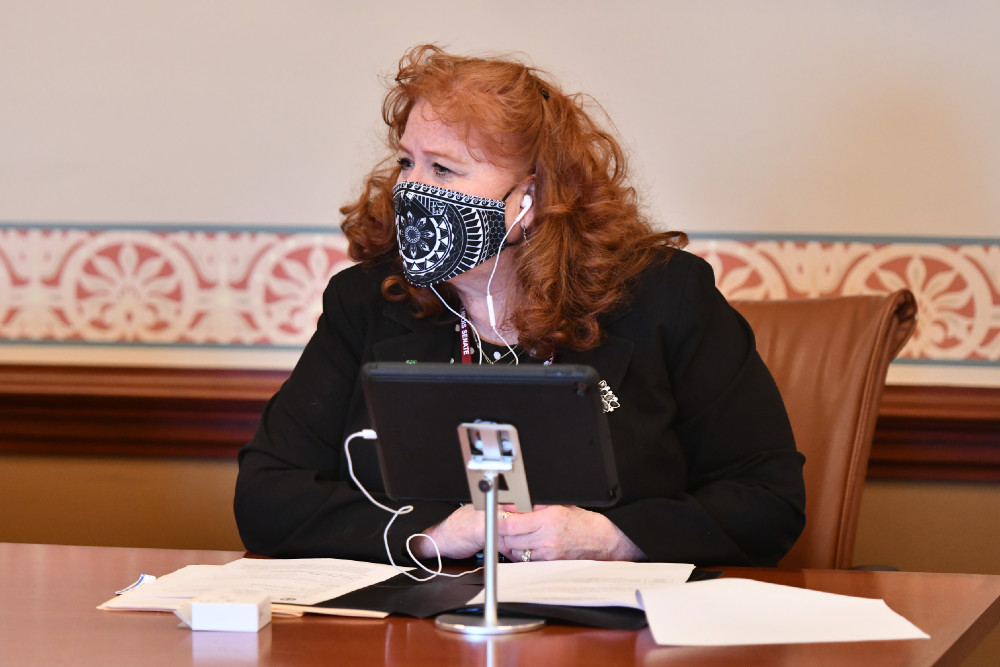 SPRINGFIELD – To provide targeted support to college students and staff in Illinois, an initiative sponsored by State Senator Laura Murphy (D-Des Plaines) to create an online resource hub geared toward campus mental health passed the Senate Wednesday.
SPRINGFIELD – To provide targeted support to college students and staff in Illinois, an initiative sponsored by State Senator Laura Murphy (D-Des Plaines) to create an online resource hub geared toward campus mental health passed the Senate Wednesday.
“The challenges of higher education can take a toll on the entire campus community,” Murphy said. “This initiative would provide students and professors alike an easy-to-access website listing all available resources to help manage stress, anxiety and depression.”
The legislation would require the Department of Human Services to maintain a page on its website with mental health resources specifically tailored to post-secondary education institutions, their staff, students and families.
Currently, DHS provides digital brochures and links on its website of helpful tools for those who may be dealing with a mental health concern. However, the website does not contain provisions directly targeted to post-secondary education and its communities.
“Balancing classes, exams, extracurricular activities and home life can sometimes feel overwhelming,” Murphy said. “It’s critical that our campus communities know there are resources available to help support them through these hardships and come out stronger.”
Senate Bill 1786 passed the Senate and now heads to the House.
Murphy: Reinstated commission would help guide Illinois to a full recovery
- Details
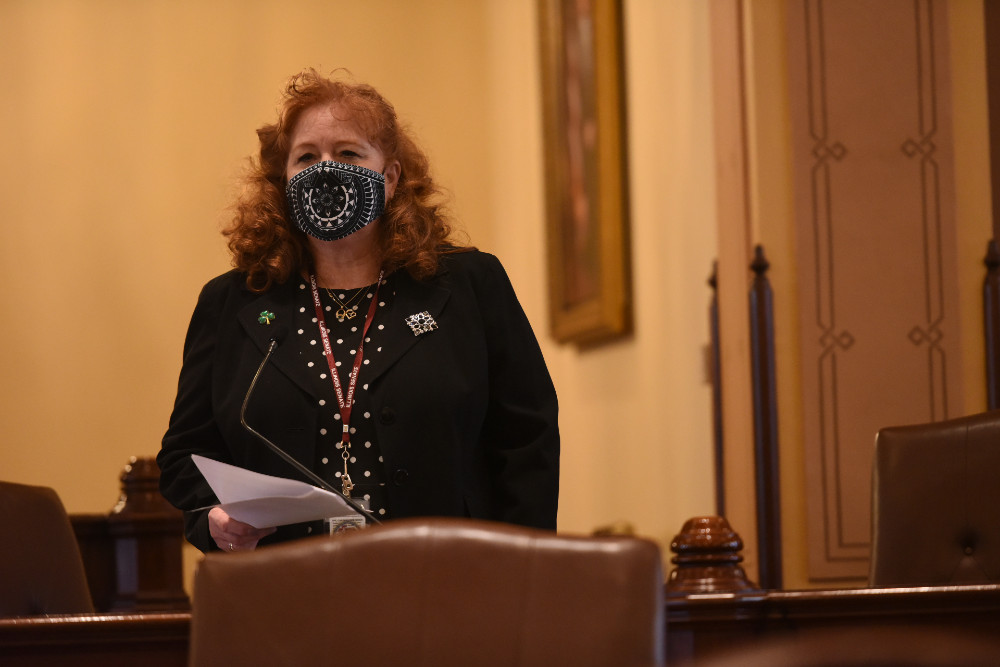 SPRINGFIELD – With the vaccine effort underway but COVID-19 cases still on the rise, State Senator Laura Murphy (D-Des Plaines) advanced a measure out of the Senate Wednesday to give the legislature a voice in the reopening process by reinstating the Restore Illinois Collaborative Commission.
SPRINGFIELD – With the vaccine effort underway but COVID-19 cases still on the rise, State Senator Laura Murphy (D-Des Plaines) advanced a measure out of the Senate Wednesday to give the legislature a voice in the reopening process by reinstating the Restore Illinois Collaborative Commission.
“When the state was first grappling with the pandemic, the Restore Illinois Collaborative Commission gave lawmakers the chance to offer input and communicate feedback from their constituents,” Murphy said. “Our work isn’t over yet. It’s time to reinstate the commission so we can help guide Illinois to a full recovery.”
Murphy’s proposal would reenact the Restore Illinois Collaborative Commission, a bipartisan, bicameral commission created last May to monitor and help shape the state’s economic recovery plans after the COVID-19 crisis.
The commission met from July through December 2020, joined by representatives from a variety of state agencies to ask questions and offer feedback to help advance the state’s recovery.
The commission originally sunset on Dec. 31, 2020, but in light of the continuing challenges of the pandemic, Murphy’s initiative would extend the operation of the commission by two years to Jan. 1, 2023.
“Over a quarter of Illinoisans are fully vaccinated, but the recent rise in positivity rates is a reminder that we aren’t out of the woods yet,” Murphy said. “It’s critical that legislators have a say in all decisions being made as our state moves forward.”
Senate Bill 632 passed the Senate and now heads to the House.
More Articles …
Page 57 of 137
